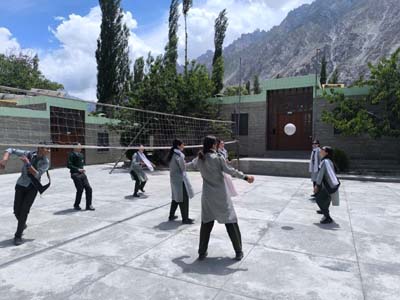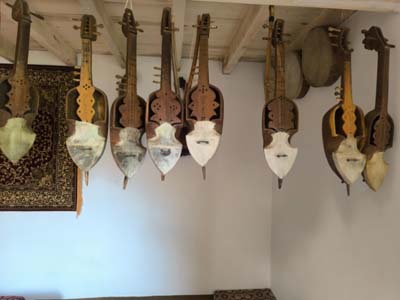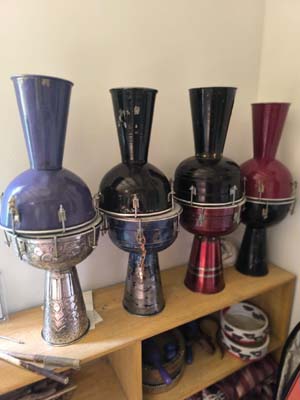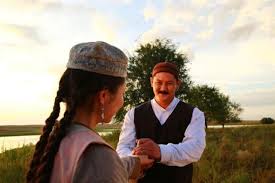Hunza’s Journey: From Education to Cultural Revival

Mahroo Sajid
Islamabad: Pakistan is a home to culture, traditions and customs. The beauty lies in the fact that every region has its own heritage, language and culture. This is one of the reasons why Pakistan is a big attraction from people all around the world to come and experience the unique and beautiful customs around the country.
Talking about the culture and heritage, Gilgit-Baltistan and if I speak particularly, Hunza district is a major landscape and home to beautiful people, traditions, heritage and culture. Recently, when I got a chance to visit Hunza, I couldn’t help noticing that a lot of developmental work there was done by USAID/Pakistan. I decided to write about what I observed there in terms of cultural preservation. Also, most of the projects were already concluded so sustainability of resources also became a factor which I wanted to pen down.

USAID has always been proactive and supportive when it comes to gender equality and girls’ education. A pleasant surprising fact was the literacy rate of Hunza which is 100% which basically means that every school going boy and girl residing in Hunza is attending school and getting at least the basic education that makes them able to read and write. This brings me back to the subject of USAID’s initiatives to support girls’ education. This is the key reason for the foundation of the girls’ hostel at Al Amyn School so every girl from near or far may get a chance to attend school.
According to Abdul Waheed, who was the General Secretary of Gulmit Educational and Social Welfare Society (GESWS) back in 2011 and is currently working in the Finance department at Al Amyn Model School, GESWS applied for a grant for a girls’ hostel after the 2011 Attabad lake formation incident as it was difficult for the girls to travel from distant places because the whole area was submerged underwater. At this time, USAID supported GESWS and provided a $10 million grant to develop a girls’ hostel in Gulmit, Gojal, right next to the Al Amyn Model School. The hostel is designed to house 40 female students from remote areas, 4 teachers, and 5 staff members each year. The students come from areas 30-60 kilometers away, and the hostel aims to improve their ability to stay in school and attract more female students from these remote regions.

The hostel was initially planned to be a temporary place where the girls could stay to avoid the difficult travel back and forth. However, due to a great influx of girls from distant areas to avail of this facility and attend school, the hostel continued its operations until 2019. Currently, the building serves as home to the Bulbulik Heritage Centre, another significant initiative of USAID in Hunza, for cultural preservation. With USAID’s support, the center hired trainers, and collected artifacts, including old photographs, written material, and musical instruments.
The Bulbulik Heritage Centre was developed with the idea of preserving the historical Wakhi language and passing it on to the new generation through music and poetry. In its first year, 80 young students enrolled in the Bulbulik Heritage Centre, where they were taught the beautiful Wakhi language in the form of songs along with six musical instruments, including Rubab, Gajik (Violin), Surenai, Bansuri, and Sitar. After successfully completing this musical and linguistic training, these students performed nationwide, gaining immense appreciation and recognition. Many of these youngsters are now settled abroad, benefiting from the training they received through USAID’s support in the first year. Their recorded songs, like “Dilet Diwona (Wild Heart),” are broadcast on local media. These “Nightingales of Pamir” are using music to preserve their ancient language and culture.
The Bulbulik Heritage Centre is still successfully running under Ali Aman Gojali, Chairman of the Bulbulik Heritage Centre, and not only teaches music and language to the new generation but also performs all over the country.





